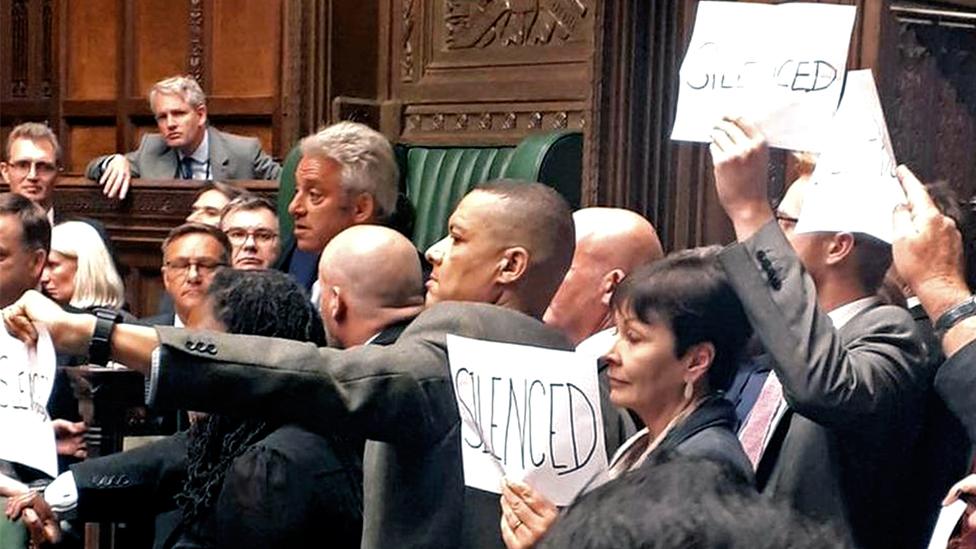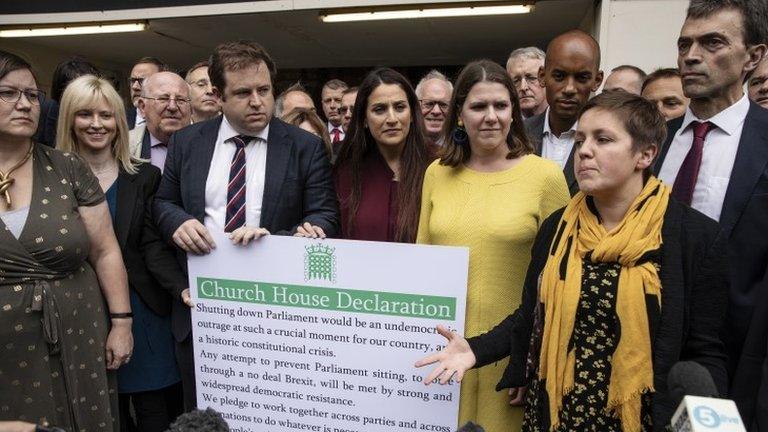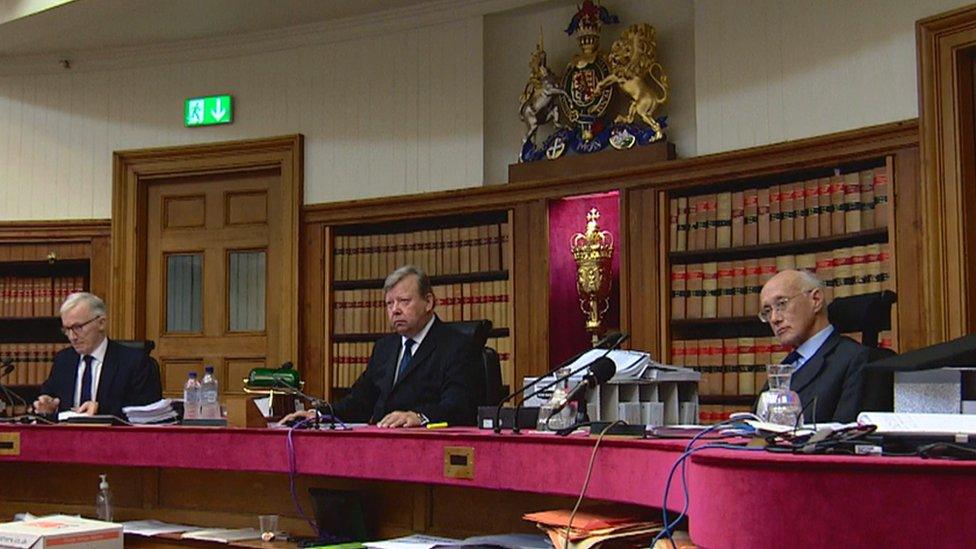Kwasi Kwarteng criticised for 'biased judges' comment
- Published
Kwasi Kwarteng claims 'many people are saying judges are biased' in Andrew Neil interview
A minister has been criticised for suggesting that "many people" believe judges are biased about Brexit.
Kwasi Kwarteng's comments came after a court in Scotland said the current prorogation of Parliament was unlawful.
He told the BBC's Andrew Neil Show: "I'm not saying this, but, many people... are saying that the judges are biased."
But Boris Johnson has defended the independence of the judiciary.
The prime minister said he would not "quarrel or criticise" the judges in the case, adding: "The British judiciary, the United Kingdom judiciary, is one of the great glories of our constitution - they are independent."
He said: "Believe me, around the world people look at our judges with awe and admiration."
Mr Johnson, referring to an English court's decision that prorogation is lawful, added: "The High Court in England plainly agrees with us but the Supreme Court will have to decide.
"I think it's proper for politicians to let them get on and do that."
Ex-Liberal Democrat leader Lord Campbell called Mr Kwarteng's comments "ill-judged".
Defence Secretary Ben Wallace said that British judges were "incredibly fair" and the "the best in the world".
"We should always defend the independence of our judiciary," he told BBC Breakfast.
On Wednesday, Mr Kwarteng - who campaigned for Brexit in 2016 - told Andrew Neil that there was concern about the extent to which judges are "interfering in politics".
He said: "I think that they are impartial, but I'm saying that many people, many Leave voters, many people up and down the country, are beginning to question the partiality of the judges.
"That's just a fact. People are saying this all the time, they are saying, 'Why are judges getting involved in politics?' We've got to be honest about the debate."
Johnson: Judges are independent
He added: "The extent to which lawyers and judges are interfering in politics is something that concerns many people."
Lord Campbell, who was Liberal Democrat leader from 2006 to 2007, criticised Mr Kwarteng.
"I would expect a government minister to understand the importance of the independence of the judiciary and not make any comments that might undermine public perceptions," he said.
'Rule of law'
Housing Secretary Robert Jenrick distanced himself from Mr Kwarteng's comments when asked about them on Robert Peston's ITV programme on Wednesday.
He said: "We must back the judges in this country to uphold the rule of law.
"I would go back to, though, the comment that was made by the High Court which said I think that the words they used were, 'You have to be very cautious before you intrude into debates between the executive and Parliament'."
Mr Kwarteng's views were also criticised by former Justice Secretary Sir David Lidington.
Sir David, who was effectively Theresa May's deputy when she was prime minister, tweeted, external that he had "seen no evidence of the courts getting involved in politics but rather English and Scottish courts grappling with important legal/constitutional questions referred to them by UK citizens - and coming to different reasoned judgements".
Mr Kwarteng's remarks came after a panel of three judges sitting at the Court of Session, Scotland's highest civil court, found in favour of a cross-party bid to prove Mr Johnson's move to suspend Parliament, known as proroguing, is illegal.
A UK government appeal against the ruling will be heard by the Supreme Court in London next week.
The current five-week suspension of Parliament started in the early hours of Tuesday and is due to last until 14 October.
But opposition MPs have called for Parliament to be immediately recalled in the wake of Wednesday's judgement.
- Published11 September 2019

- Published13 September 2019

- Published11 September 2019
